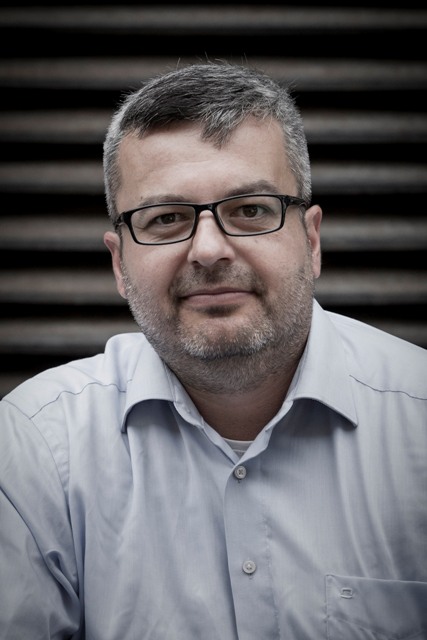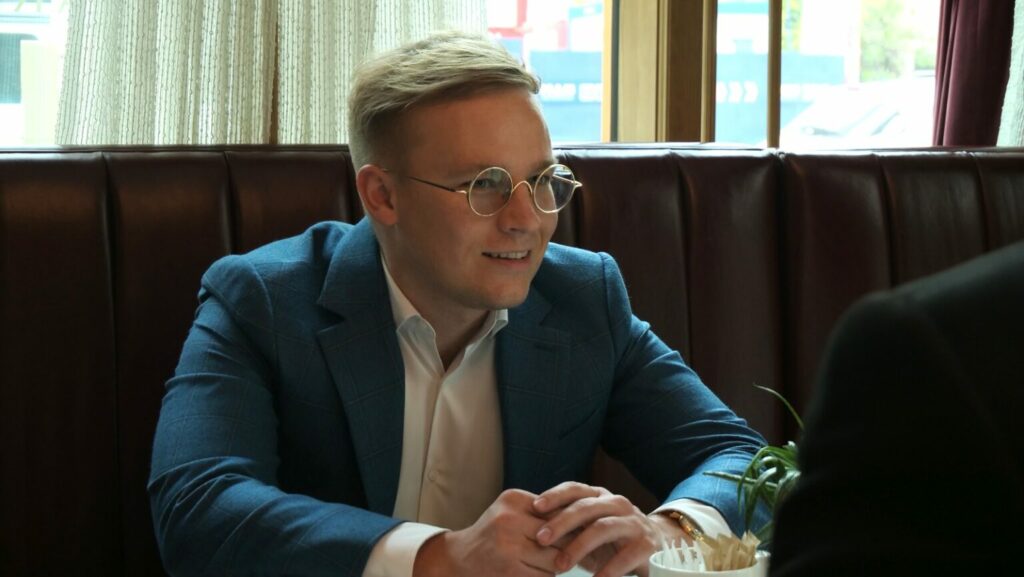The https://english.atlatszo.hu use cookies to track and profile customers such as action tags and pixel tracking on our website to assist our marketing. On our website we use technical, analytical, marketing and preference cookies. These are necessary for our site to work properly and to give us inforamation about how our site is used. See Cookies Policy
Bence Partos: “The idea of independent and objective media is dead”
Independent media cannot exist in Hungary today without external funding, but external funding makes this very independence contentious. The solution? Something akin to a working democracy, probably – which is unfortunate news for a country proudly headed in the opposite direction. Despite the bleak quagmire – or because of it – we sat down with Bence Partos, founder of Transparent Journalism Foundation (Transzparens Újságírásért Alapítvány), to debate the core values of journalism and the role of foreign funding in independent media.
The relationship between Átlátszó and Transparent has been one of antagonism and lawsuits. Now, the two organizations’ founders met to debate their vying media philosophies in the spirit of healthy social dialogue. An edited summary of the debate is published on the websites of both organisations for public discussion.

On the Hungarian media landscape…
Transparent, according to Partos, is entirely politically independent and does not disproportionately target anti-government press. Their mission statement states that they “aim to make journalism in Hungary more transparent, to raise media awareness, and to build a bridge between readers and journalists. We do not judge, we inform.”
But Tamás Bodoky takes issue with the lofty claims, because Transparent’s website is silent on pro-government, state-funded press – which represents the most significant segment of the Hungarian media landscape and is funded by hundreds of billions in taxpayers’ money. By contrast, the foundation is quick to criticize government-critical press, going as far as to launch an investigation into the monthly 150, 000 HUF from Soros.
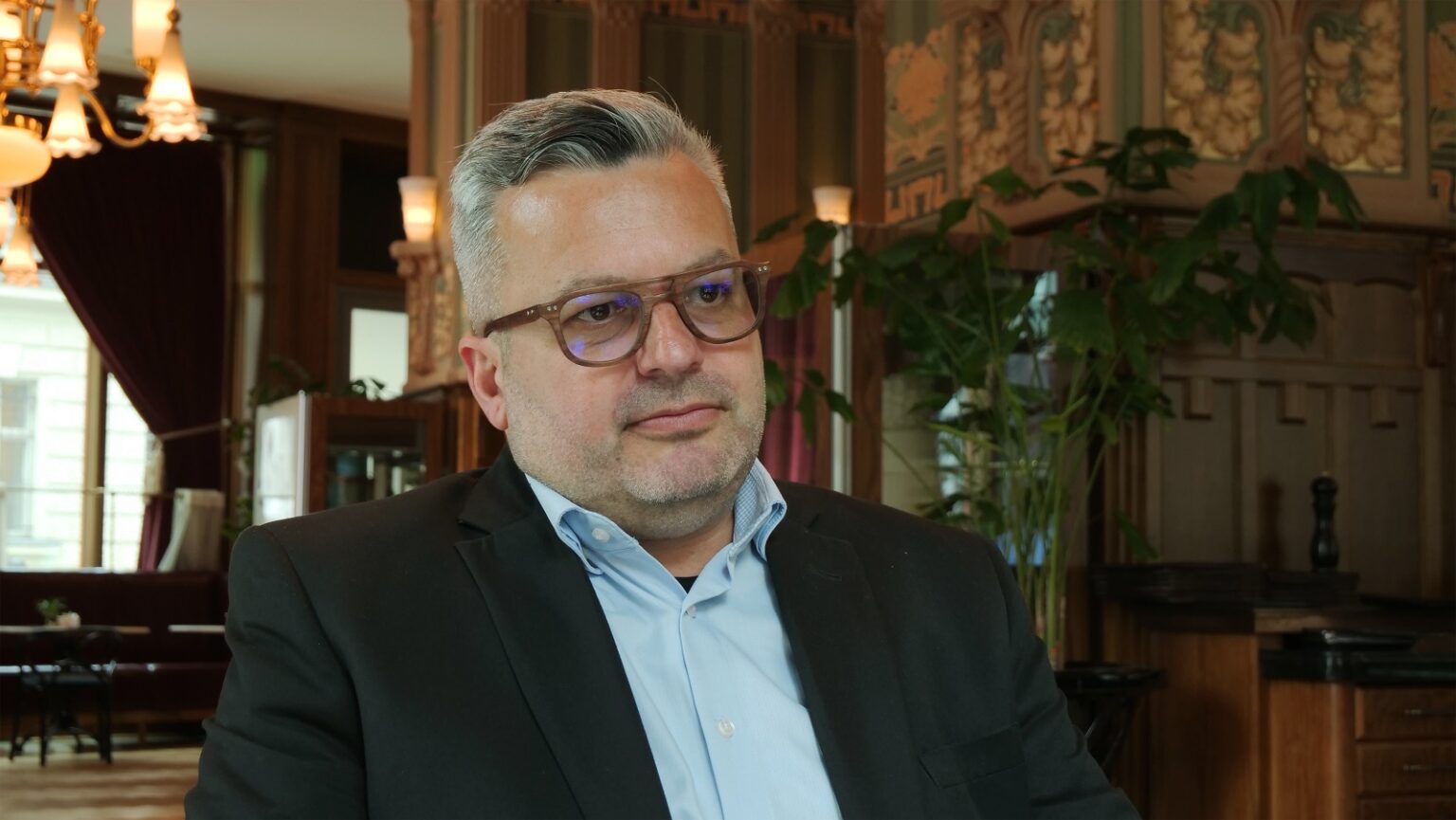
Tamás Bodoky – journalist, editor, started his career at Magyar Narancs in the 1990s. Between 2000-2010 he was the tech-science columnist, deputy editor-in-chief, and then senior editor of Index, and in 2011 he became the co-founder of Átlátszó, where he has been editor-in-chief and managing director ever since.
Partos insisted that the foundation regularly covers the party press, but they’ve repeatedly found more to discuss on the opposition side.
“On the one hand, there is a right-wing political-intellectual community, which sees its goal as conveying its world view and political values to society through various channels. In this respect, it acts in a transparent manner,” he said. “On the other side, we see that there are newspapers labelling themselves as objective and independent, which are suddenly being funded by a Czech billionaire, the Open Society Foundation or organizations connected to the US Democrats,” he said.
“It’s not that journalism independent of any political power does not exist,” he said. “But people don’t just throw 300 million at you. Anyone with even a minimal understanding of the nature of power and money knows that there is no such thing as a free lunch. “There always has been and always will be honest journalism, independent of political interests. There must be. But it may not be found where it is most loudly proclaimed, chest thumping,” he argued.
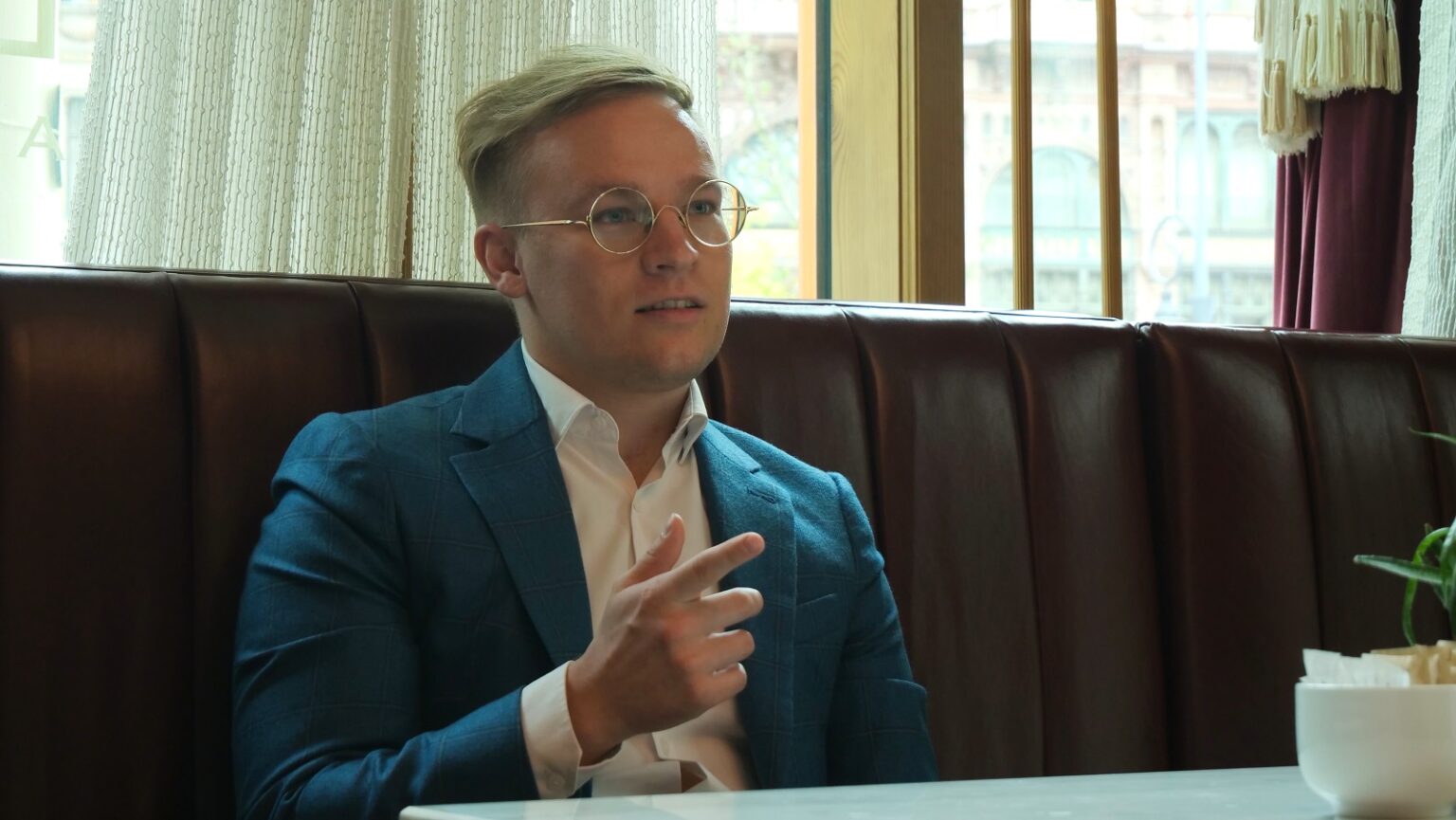
Bence Partos – psychologist, businessman, founder-owner of Mindset Psychology. In addition to business, he is active in education and the civil sector, founder of the MCC-Mindset Psychology School and the Foundation for Transparent Journalism.
On funding, domestic and foreign…
Bodoky pointed out that non-government media has had few alternative means of survival to foreign funding in Fidesz’ two-thirds setup. The Hungarian state generously supports the pro-government press and neglects critical media, he said, which forced the latter to look for new business models.
None of these are perfect, explained Bodoky. The subscription model excludes everyone who isn’t privileged enough to spend on the media without foregoing other needs – which is a large section in Hungary’s financially struggling society. The alternative to paywalls is reader contributions, subsidies, and donations of one percent of personal income taxes – which rarely, if ever, cover survival.
Non-profit organisations, however, are entitled to apply for and accept grants from individuals and institutional donors. If institutions that support press freedom and pluralistic democracies tend to be based in Western Europe and the United States – such as the Open Society Foundation – that’s where the money will come from.
“I do not think that it’s nefarious to accept support from these institutional donors, especially when the governing party in Hungary – an EU and NATO member, by the way – is trying to discredit and destroy critical voices, is running a party propaganda machine, and has effectively re-established a one-party system,” said Bodoky.
Partos argued that accepting donations isn’t the problem – it’s the lack of transparency around where funding comes from that is the cause for concern. Bodoky agreed – in efforts to ensure transparency, Átlátszó regularly publishes how much money they receive, and from where. They do not claim to function solely off reader support, but reader support is still their primary source of funding. This mixed plural funding also allows Átlátszó to protect against donor dependency.
“Foreign institutional donors decide whether they want to support the journalism we practice or not. I am more than happy to invite any Hungarian state organization to support us on the same terms and with the same amounts as our foreign institutional donors, if foreign funding is this deep a concern,” he said.
“But I would like to point out that foreign donors do not order stories from us like Fidesz politicians do from the government press. At most, they want financial records of how we spend the funding, and they accept, contractually, that they cannot interfere with content,” said Bodoky.
Partos argued that there is a value-laden choice in funding a journalism that stands for Western-style democracy and EU principles, which are paradigms of their own, and he feels that there is far too little transparency around these issues. “It is perfectly fine for you to admit that Soros money is coming to you and to try to justify why there is no problem with that,” he said. “Let the readers decide whether it’s okay for them or not. But they can make a responsible decision because they have the information to do so.
“Let’s call a spade a spade – these ‘foreign donors’ support journalism based on liberal or left-wing ideology. Not press freedom, not pluralist democracy. You can frame it as ‘the core values of Western-style democracies’, it sounds good, but it is a completely subjective value criterion.”
Bodoky argued: this is a country “whose government has made a mockery of these values for twelve years and has built a hybrid electoral autocracy, where democratic institutions are merely a sham and serve an authoritarian system of government”.
“Western donors do not support journalism based on liberal or left-wing ideology; they support journalism that checks power. That is regardless of whether the oppressive regime in question is left-wing or right-wing,” he said. Is the injection of these values malignant in a country where the media and a pseudo-civil society are just cogs in the government machine, and there would be few to no checks on power otherwise?
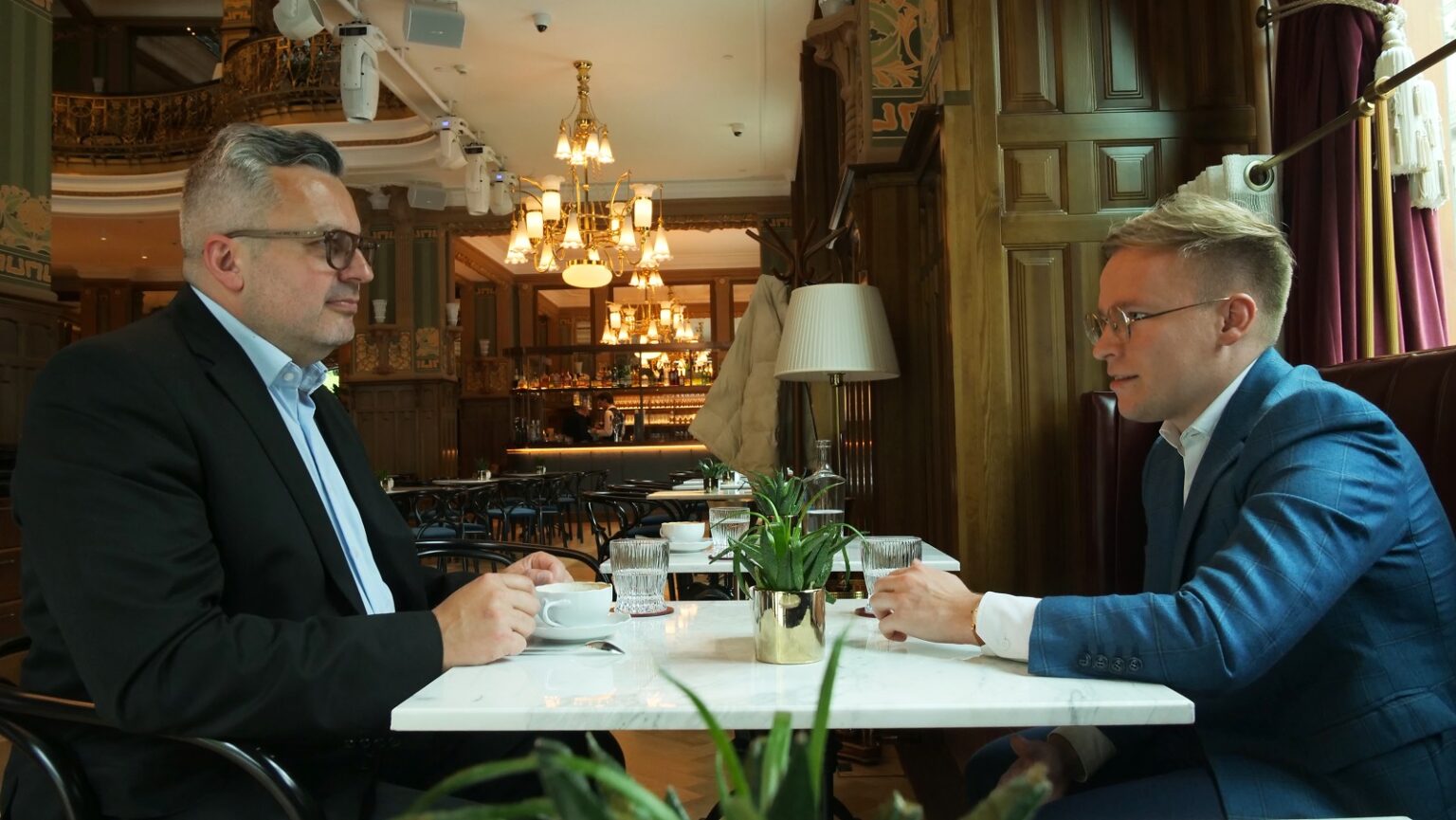
Bence Partos – psychologist, businessman, founder-owner of Mindset Psychology. In addition to business, he is active in education and the civil sector, founder of the MCC-Mindset Psychology School and the Foundation for Transparent Journalism.
On the purpose of journalism and censorship…
Partos argued that the very concept of the media as the fourth estate is a political one. “Who gave the media the mandate to check or control any political power?” he asked. “Power in Western countries is elected in a democratic, transparent way. Many journalists, on the other hand, proclaim themselves as controllers of power, but people do not know who they are, what they really know, and how they got into this role in the first place,” he said.
The media’s checks and balances on power are “often selective and biased” and their power-checking process is entirely opaque – which has resulted in the loss of prestige and a low trust in journalists in the West, according to Partos. “I believe that the purpose of the media is not to control power, but to provide factual information and scientific knowledge, to create a platform, and to stimulate intellectually with a wide variety of smart content,” he said.
“I still think that, if the main thrust of your editorial policy did not coincide with a media ideology favoured by Western donors, you would not see money from these institutions,” said Partos. “And this can trigger a self-regulatory process, where publications increasingly represent the ideological line that the foreign donors want to strengthen.
“In most cases, they support newspapers whose members are largely liberal anyway. However, these mutually reinforce each other: the newspapers believe in this ideology anyway but become even stauncher if they receive money for it.” Partos referred to this as an exercise of “soft power through selective censorship”. “Any journalist who knows that their wages are being paid by foreign donors knows not to go against the donor’s ideology,” said Partos.
Bodoky argued that selective censorship in the independent media stems primarily from the government. “In reality, the foreign subsidies are only enough to prevent the independent press from disappearing entirely from Hungary, or to prevent them from having to go into unprincipled deals with the governing party, as in the case of Népszava,” said Bodoky.
“Compared to the taxpayers’ money channelled into the government press and propaganda machine, we are talking about peanuts that allow a very few platforms, typically on the Internet, to operate uncompromisingly,” he said. “What you accuse those accepting foreign subsidies of is typical of journalists working in the government media – they know exactly what not to write, what is inconsistent with the ideological direction or expectations.
According to Bodoky, the government media’s “if you’re not with us, you’re against us” logic has caused a similar oversimplified dichotomy to develop in the independent media. Editorial pluralism in newsrooms has decreased, and journalists who fall into more nuanced categories – who don’t fit into either team – are left adrift. This tendency is reinforced by the increasing polarisation of readers.
“This is something I have always fought against at Átlátszó. I believe that we need multiple perspectives to see the big picture – like András Hont, a former Fidesz politician who can hardly be accused of having a progressive bias, and who has written a series of articles on the united opposition’s failure in the 2022 elections,” said Bodoky.
Átlátszó regularly covers the opposition critically – a 2006 documentary with Fruzsina Skrabski on police funding even garnered Bodoky accusations of being a Fidesz henchman from the left, and the paper has also been publishing articles about Datadat before and after its role in the dollar left scandal.
“It is not true that our journalists avoid subjects that might offend the ideological views, real or perceived, of our foreign supporters, and we have even investigated foreign aid that was not provided in a transparent manner,” said Bodoky.
On the existence of independent media
Transparent remains independent of all political entities, according to Partos. “We have a media philosophy, through which we view and analyse events in the press. This media philosophy provides a stable framework for our work, but it is not set in stone – it can change and evolve organically in response to the stimuli we receive. We try to uncover reality with facts and data, but we already have some subjective preconceptions about the world based on our experiences,” said Partos.
A key distinction between his foundation and the mainstream media is an openness about his biases. “We do not try to set ourselves up as some sort of independent, objective, neutral, truth-telling, power-checking body as much of the mainstream media does,” he said. Prospects for a similar path in the mainstream media are poor, said Partos.
“I think the idea of independent and objective media is dead,” he said. “Journalism independent of political interests can exist, albeit to a small extent, but journalism independent of ideologies cannot.
“There is no such thing as journalism independent of any value system or paradigm. Readers know that, and it is pointless to pretend otherwise,” he said. This is not, in itself, a bad thing, according to Partos. Biases and values make content “more consumable, exciting, and intellectually valuable”, he said.
“But this must be embraced transparently, and subjective interpretations should never override the facts. We need transparent, honest, fact-based journalism. This is not easy to achieve, and we have been experiencing a growing polarisation of readership for years.”
Years ago, Partos initiated a column that analysed public events through the lens of psychology. He thought a balanced platform would fill a gap in the market for a heavily demanded product. One article would come out to alienate one camp – the next article would alienate the other. Demand for objective reporting was not, apparently, raging. “There was only a very small section of true intellectuals who were open to reading content that did not fit their paradigms,” said Partos. He discontinued the balanced and impartial column – there was no demand for it.
“The independent and objective narrative of the media is most often criticised on a theoretical level – that it is no longer a theoretically viable possibility because people, including journalists, are inherently subjective. But it’s not workable in practice either,” said Partos. “Anyone in Hungary who claims to produce independent or objective media is not telling the truth. If it were the truth, they’d have virtually no readers.”
Bodoky had similar experiences with Átlátszó. “I have to admit that there is something to this,” he said. “Átlátszó’s audience doesn’t always take it well when we criticise the opposition, and several of them have threatened to withdraw their support because of András Hont’s employment. Others offered support in exchange for getting rid of the journalist they consider ‘unsuitable’ ideologically.
In response to the realization that impartiality attracts few readers, Partos quit traditional media production and founded Transparent with a goal to increase media literacy. In the black-and-white Hungarian context, many tried to classify them in one box or the other. Partos rejects the categorizations.
“We have done practically nothing to qualify our activities as right-wing or radical, and efforts to label us are a prime example of ideological bias overriding facts,” he said. These labels exacerbate social cleavages, according to Partos. “Harmful social polarisation did not just appear out of nowhere. Public figures and the media bear a heavy responsibility for it,” he said.
Translated by Vanda Mayer. The original, Hungarian version of this story was written by Tamás Bodoky and can be found here.
